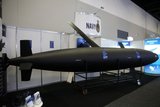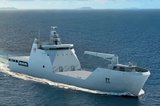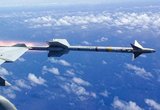Australia requests LRASM for F-18s
The US State Department has made a determination approving a possible Foreign Military Sale (FMS) to Australia of Long Range Anti-Ship Missiles (LRASMs).
Announced by the Defense Security Cooperation Agency on 7 February, the FMS is to include up to 200 AGM-158C LRASMs and related equipment for an estimated cost of $990 million.
Also included are 11 ATM-158C LRASM telemetry variant (inert), DATM-158C LRASM, captive air training missiles (CATM-158C LRASM), containers, support and test equipment.
Australia intends to use the missiles on its F-18 aircraft to provide enhanced capabilities in defence of critical sea-lanes.
The prime contractor will be Lockheed Martin.
Related Equipment in Defence Insight
More from Naval Warfare
-
![What capabilities are being tested under AUKUS Pillar II?]()
What capabilities are being tested under AUKUS Pillar II?
Collaboration on AUKUS Pillar II extends beyond the core trilateral agreement, presenting global opportunities for companies with advanced technologies.
-
![Australia signs US$2.8 billion ship deal with Austal but puts pressure on company to deliver]()
Australia signs US$2.8 billion ship deal with Austal but puts pressure on company to deliver
The A$4 billion Landing Craft Heavy contract for Austal follows on from a A$1 billion deal in December for Landing Craft Medium ships, but the Australian government has made it clear that a contract for Mogami frigates is reliant on the success of these two contracts.
-
![US Navy to deploy UAVs with standard munitions in long-range strikes]()
US Navy to deploy UAVs with standard munitions in long-range strikes
As part of the Runway Independent Maritime & Expeditionary Strike programme, the US Navy is pursuing drones capable of delivering palletised rounds or 1,000lb-class munitions.
-
![Turkey targets Italian market with strategic partnership on USVs and hybrid platforms]()
Turkey targets Italian market with strategic partnership on USVs and hybrid platforms
Havelsan, VN Maritime and Piloda Defence will collaborate to develop and integrate a range of maritime solutions with a view to secure a first procurement contract in Italy in the first half of this year.
-
![Could Asia and the Middle East offer growth opportunities for Italy’s Fincantieri?]()
Could Asia and the Middle East offer growth opportunities for Italy’s Fincantieri?
Export campaigns for Fincantieri’s submarines and frigates are central to the company’s ambitions as billions of dollars in unawarded contracts come into focus.






















